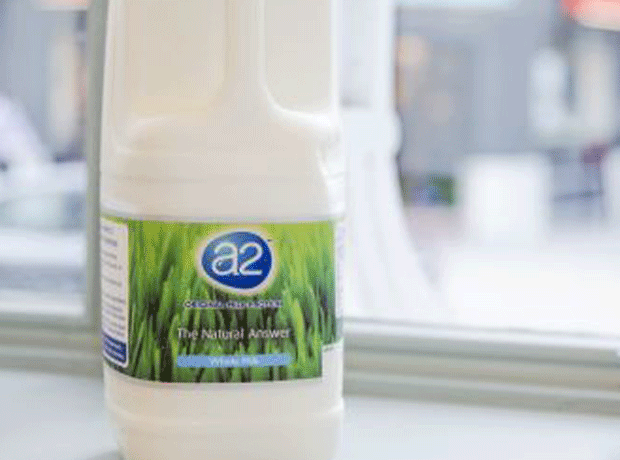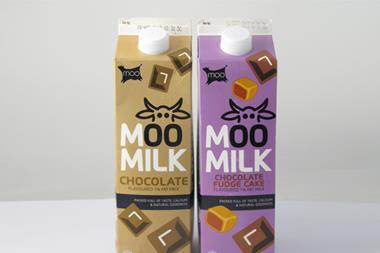
‘New research strengthens link between common cows’ milk protein and serious neurological disorders’.
You’d be forgiven for thinking it’s a tabloid headline, plucked from this morning’s papers.
But, intriguingly, the latest broadside to be fired at the dairy industry (see The Telegraph’s ‘Bovine TB in milk as well as beef’, from Sunday) actually comes from within, courtesy of a press release issued by A2 Milk – a joint venture in which Müller Wiseman Dairies (one of the UK’s biggest processors of “common cows’ milk”) has a 50% share.
A2 Milk, on sale in the UK mults, contains only A2 beta-casein (standard milk contains A1 and A2) and is pitched as an alternative for people who may be suffering from A1 milk intolerance.
To date, any concerns around A2’s launch have centred on the potential for confusion amongst consumers as to who it is or isn’t for. A2 has, however, been clear to point out that it “is not suitable for anyone with a milk allergy or an intolerance to lactose”.
But this morning’s release heralds a new dawn in the brand’s marketing approach and positioning in the UK.
And it represents a difficult pill for Müller Wiseman to swallow, as A2 UK is an autonomous entity with its own board.
A2 cites research unveiled at an event in London last night - which I attended - by Dr Malav Trivedi, a researcher at Northeastern University, Massachusetts. His work is funded by the Autism Research Institute, A2 Milk Corp, and the National Institute of Drug Abuse, though this is not mentioned in the release.
According to the release, Dr Trivedi proposes that “eliminating A1 protein from diets could dramatically reduce the symptoms of autism and other inflammatory disorders”.
Müller Wiseman’s official line on the subject is: “We simply do not agree with or endorse the views put forward by Dr Malav Trivedi at this event. Whilst some people who experience digestive discomfort after drinking milk may find that their symptoms are alleviated by drinking A2 Milk, it is important to stress that all cows’ milk whether it contains A1 or A2 beta casein is a nutritious and healthy food.”
In the meantime, Müller Wiseman will continue to process A2 milk on behalf of its joint venture and no doubt continue in its hope (stated in its launch release on A2 milk) “that A2 Milk will help to grow the overall market for fresh milk by bringing people back to dairy because many people are not drinking as much milk as they would like to”.
If Grocer readers would like any further information on the pros and cons of A1 and A2 milk, there’s a copy of ‘Devil in the milk. Illness, health and politics A1 and A2 milk [updated edition]’ by Keith Woodford on my desk, provided in last night’s goody bag.
It does, however, come with a health warning: “Claims about A2 milk and the effects of BCM7 [a substance produced by the A1 protein] are not new. They were addressed by the European Food Safety Authority in 2009,” says Dr Judith Bryans, director of The Dairy Council.


















2 Readers' comments